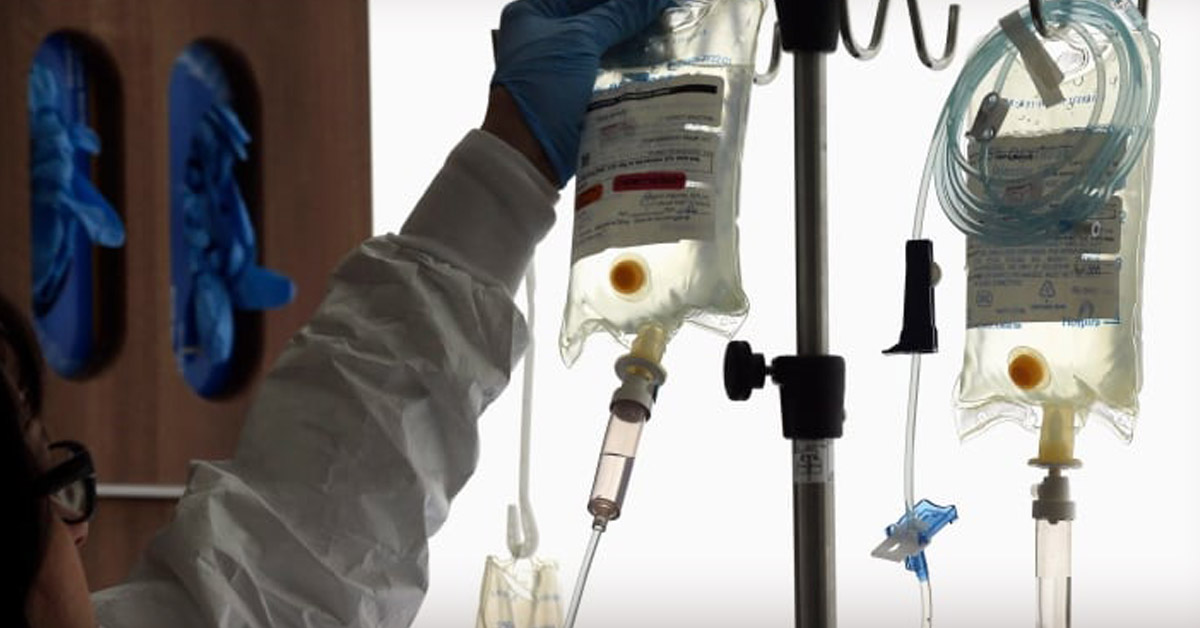In this week’s Innovation Partners BioBlog, we look at the many changes and updates in the pharmaceutical world. The Senate’s drug pricing provision is raising alarms for some doctors. Canadian hospitals face a shortage of critical chemotherapy drugs. Eli Lilly’s CEO pushed back at Democratic party candidates’ proposals to cap drug prices. CVS announced a new drug home delivery program to compete with Amazon and UPS. This and more in this week’s Innovation Partners BioBlog.

Senate bill’s drug pricing provision raises industry alarms
One provision inside the Senate’s drug pricing bill is raising red flags for some doctors who are worried that patients with fragile medical conditions could be harmed. The Community Oncology Alliance, an advocacy group for cancer doctors, is concerned about a provision it says could push drugmakers to cut patient assistance for expensive chemotherapy drugs, or shortchange doctors who buy them. The language is sandwiched amidst other information, making it hard to detect. Oncologists and other doctors are drawing attention to it in order to raise concerns before it goes further in the senate.
READ MORE
Cancer doctors are calling for a permanent fix to drug shortages in Canada
Canadian doctors raised the alarm this week on three oncology drugs that appear to be in short supply: vinorelbine, leucovorin, and etoposide. The vital chemotherapy drugs treat lung cancer and testicular cancer. The main culprit is the communication between suppliers, pharmaceutical companies, and hospitals. Doctors report they only hear of shortages a day or two before supplies run out. For patients who need immediate treatment, the news can be concerning. Canadian patients sometimes travel to different areas for treatment when shortages occur.
READ MORE
CVS taking its home drug delivery service nationwide
CVS announced it will expand CarePass, its home-delivery drug service, nationwide. The service costs $5 per month (in addition to the cost of the medications) or $48 per year and includes one or two-day delivery on eligible prescriptions. The move comes as Amazon, UPS, and other competitors test drug delivery services.
READ MORE
Hospitals, insurers signal major fight over CMS price transparency proposal
Hospitals and insurers pushed back against the Trump administration’s push for pricing transparency. Industry groups for both providers and payers came out vehemently opposing parts of the proposed outpatient payment rule released late Monday by the Centers for Medicare & Medicaid Services (CMS). Included in the rule is a proposal to make hospitals publish online starting next year the list and negotiated prices for “shoppable” hospital services and products such as clinic visits or lab tests. The pushback centers around the administration’s promise that such transparency will enable patients to shop for better prices. Hospitals argue that it is unlikely that people will shop for such services. The fear is that disclosing prices will restrict access to services by discouraging patients from seeking treatment.
READ MORE
Eli Lilly CEO to 2020 candidates: Capping drug prices would not lead to lower health-care costs
Proposals from the Democratic party presidential candidates call for drug pricing caps, but drug company executives argue that price capping stifles innovation. Eli Lilly’s CEO, David Ricks, predicted that if the Democrat’s ideas go forward, drug prices will soar since the costs of innovation must be covered somewhere. Healthcare costs, according to Ricks, would still continue to increase.
READ MORE
Vizient: Health systems should expect a nearly 5% spending jump on drugs
Health systems can expect a nearly 5% increase in the cost of their pharmaceutical purchases in 2020, according to a new report from the Vizient’s pharmacy program. Vizient compiled member participants’ purchases in hospitals and non-acute care settings. The company predicts that pharmaceutical costs will far exceed both inflation and wage growth in 2020, making healthcare less affordable.
READ MORE
Drugmakers master rolling out their own generics to stifle competition
PDL BioPharma launched its own generic version of its blood-pressure medication Tekturna, a move that many companies may emulate going forward. PDL’s “authorized” copycat hit the market in March, stalling rival generics. PDL’s version sold for $187 a month versus $166 for the competing generic, made by Anchen Pharmaceuticals, according to Connecture, an information technology firm. PDL’s brand-name Tekturna runs about $208 a month.
READ MORE



